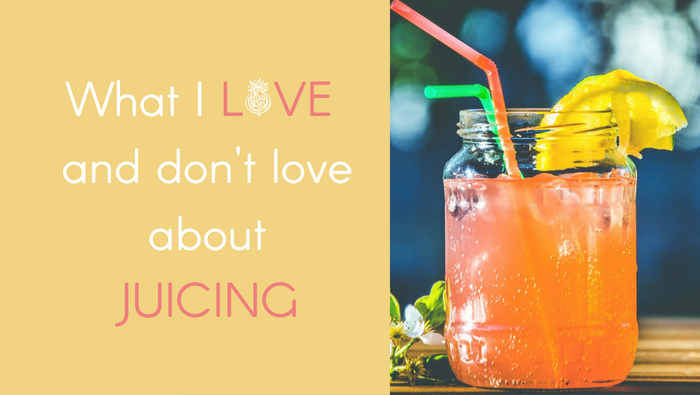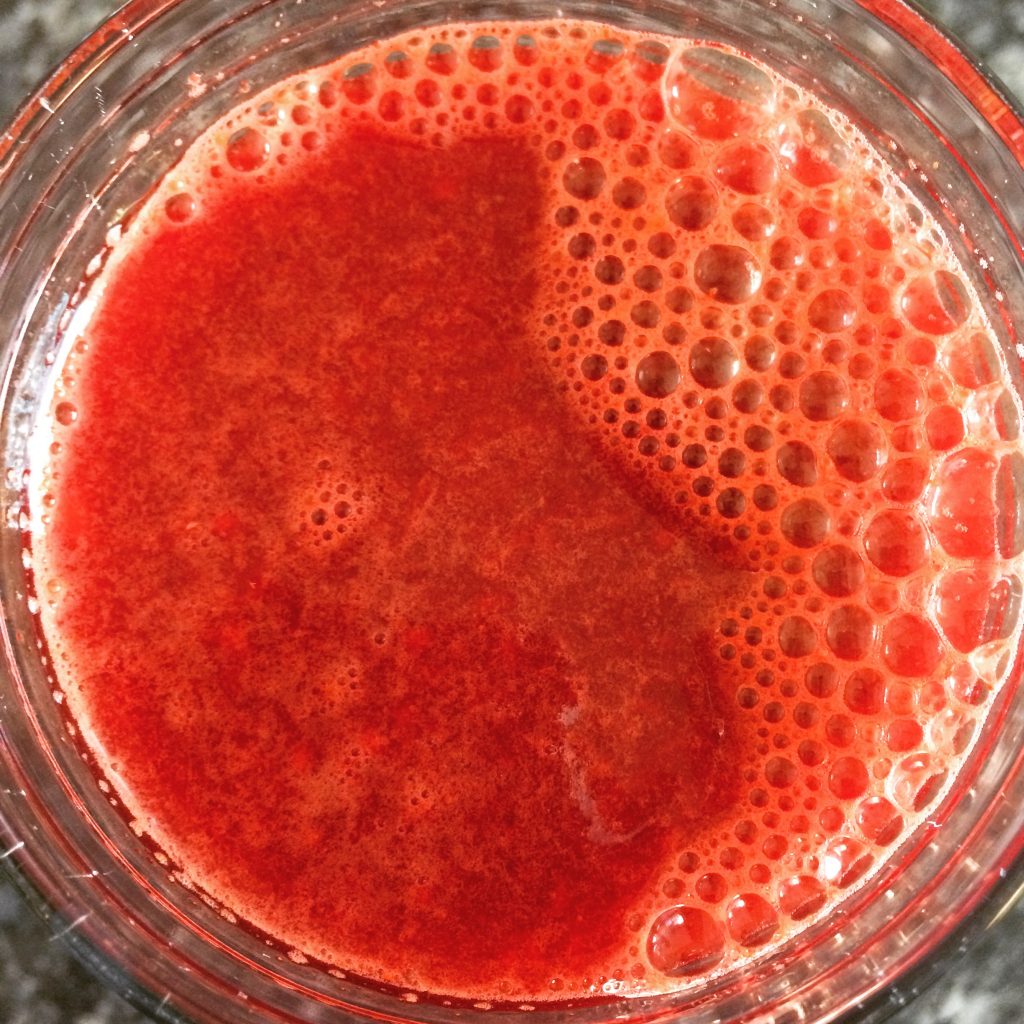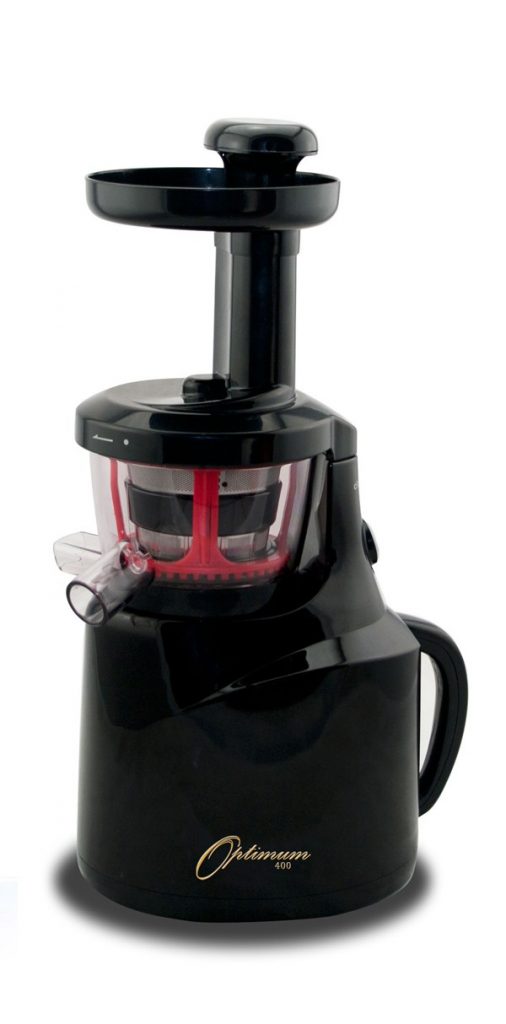Shhhhhlurp.
That’s me enjoying a juice, that is.
I LURVE juicing. I lurve juices.
Not the ones that come in a plastic carton or a bottle in a store, but real, freshly squeezed or juiced, fruits and veggies. Nothing added. Nothing taken away.
The ones in cartons are processed and lack nutrients. Sometimes they are made from concentrates. Sometimes sugar or artificial sweeteners are added.
What I Love about juicing
Here’s what I love most about juicing:-
Juices are super-concentrated with nutrients – a mahoosive hit of goodness in a glass. Fruits and veggies are nutritional powerhouses, full of nutrients to nourish, promote health, prevent disease and rid the body of waste.
Some nutrients are even more absorbable in liquid form and without food. Bonus.
Juicing is another way to get fruit and veggie dodgers to take in fruits and veggies.
Juices are super-convenient – stick ’em in a jar/bottle/flask and take then with you to work/the gym/in the car … I have a BPA-free plastic bottle and a stainless steel flask for mine.
Juices (usually) taste sooooo good. It depends what fruits and veggies you enjoy.
Juices are refreshing and thirst quenching and z-i-n-g-y.
Anyone (with a juicer) can make one – no kitchen or cooking expertise required for juicing.
There are so many different recipes out there for juices with all your fave ingredients.
What The Naysayers Might Say About Juicing
I know that some people will throw up their hands in horror that I love juicing. They’ll say I’m just following the latest trend.
Rest asssured, I don’t exist on juice alone. Never have. I include juicing as part of my diet and lifestyle. AND I only drink a small glass at a time … those bottles you can buy in supermarkets and stores are often more than one portion. About 150ml is a portion!
The naysayers will say about juicing …
… Juices have too much sugar
I say it depends what you juice. I try to juice way more veggies than fruits. And fruits have health benefits.
…Or juices have fibre taken out
Sure juicing take out the insoluble fibre or stringy bits. It doesn’t juice out the soluble fibre and that’s good for digestive health. I do agree we need insoluble fibre in our diet, though to help keep our digestion in tip top condition. There will be some nutrients in the pulp that’s left too. I get that.
…You’re better off eating whole veggies and fruits.
I’m all for people eating more veggies and fruits – for the nutrients and the fibre. So yes, as well as juicing, make ’em into smoothies, salads, soups, sauces. Make them side dishes or the main attraction to a meal. Go for it!
…And there’s no protein in a juice.
AND YOU bang on about having good protein with every meal or snack for blood sugar, energy and mood balance. HA!
Well, if you’re concerned about protein, add a plainly based protein powder to your juice. Or Spirulina (a green powder made from algae) contains high protein. Sometimes, I have a small handful of nuts or seeds after a juice.
… Juicing is just plain dangerous – we shouldn’t live on juices.
I always say never start on any major changes to diet and lifestyle without first checking with your Doctor. Having a lot of juice may not be right for some people especially if you have pre-existing health conditions. It’s wise to check.
Other notable examples show people WITH health conditions who have improved health by juicing. Have you heard of Reboot With Joe? He lost weight and improved his health by juicing.
…It’s far too expensive
Good food is expensive. I could get into the politics of food, but all I’ll say is I believe that good, local, seasonal, ,unsprayed/organic produce should be less expensive and more accessible to all.
It’s often cheaper to grow your own, visit food markets or local farms/cooperatives than to buy veg and fruit in supermarkets.
… What a waste!
Yep, what to do with the pulp that’s left?
There are lots of things you could do. I know some people who feed it to their pets/birds/animals (if it’s appropriate for those animals). I sometimes make it into other recipes – soup, crackers, cakes. Or you could compost it and use it on your garden?
… It’s just another fad with no science behind it.
Well, I’m a supporter of science. It’s a tool and a process. To test. To prove. To disprove. It’s not a belief system. Or a cult.
I’m not a fan of exaggerated health claims.
More research is going on into juices and their benefits. I’m keen to read much more.
What I Don’t Love About Juicing
But I’m not a rose-tinted spectacle wearing, (juice) glass half full girl. No siree.
There ARE downsides. Things I don’t love.
And they are … cleaning out and washing up the juicer.
Now I have a fabulous slow juicer. I LOVE it so much, I recommend them to others.
It’s a Froothie slow juicer. Same spec as other leading brands. Priced REALLY competitively. Easy to put together and dismantle. Extracts loads of juice from your produce. Relatively easy to clean.
I say RELATIVELY.
Let’s be totally honest, NO juicer is an absolute cinch to clean every time you use it. Especially if you juice stringy stuff like celery. I “de-string” mine first with a potato peeler.
And many juicers can be a bit tricky juicing stuff like rocket and parsley because the little stalky bits can block the juice pipe (technical term?).
I get around that by juicing my ingredients randomly – so a bit of lemon, then a bit of green apple, then some rocket, then a few chunks of celery and then a bit of apple, then kale … you get the picture.
That helps LOTS.
So when I’m done juicing, I gently scrape down any bits of pulp left and either use them in other dishes, put them with the other veggies I give my dogs or compost them.
Then I wash in warm soapy water with the handy brush that came with the juicer.
Simples.
I’d love to see picture of your juices and learn new recipes – do feel free to post them on my Facebook page or tag me on Twitter.
Happy juicing.
Love,
P.S. Blog contains an affiliate link.





Recent Comments